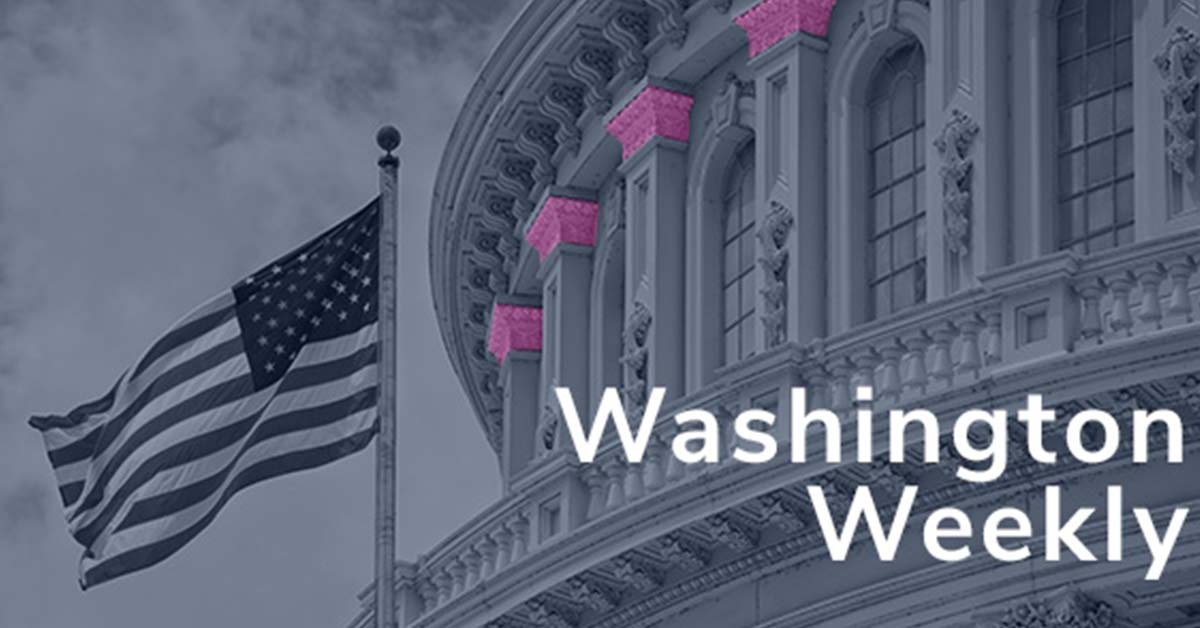
The Senate
Weeks after President Biden and a group of bipartisan senators announced agreement on a bipartisan infrastructure framework, final bill language will soon be voted upon. For weeks, a bipartisan group of Senators have worked to finalize the legislative text and the plan’s pay-fors. Now, after bill language is polished, the legislation will move to the Senate floor for consideration.
The $550 billion infrastructure bill includes:
- $110 billion for roads and bridges
- $66 billion for rail and Amtrak
- $73 billion to upgrade the power grid
- $65 billion to expand broadband access
- $55 billion for clean drinking water
- Increases for the Highway Trust Fund
- $13.4 billion from the Highway Trust Fund’s mass transit account (an increase of $3.2 billion from FY21); this will increase to $14.6 billion in FY 2026
- $3 billion annually from the general fund for Capital Investment Grants (an increase of $700 million from FYs 2016-20)
- $21.5 billion to a create the Office of Clean Energy Demonstrations; $16 billion for energy efficiency and renewable energy
- $206 million for bus grants annually for 5 years, 25% of which to acquire low- or no-emission buses
- $21 million for the Office of the National Cyber Director and $20 million to aid public and private entities’ response to cyberattacks
- Efforts to speed up permitting for infrastructure projects
Both Republicans and Democrats agreed to not fund the bill by raising taxes.
It is likely that the bipartisan infrastructure bill has enough support to pass the Senate this week as the Senate is poised to follow the House, which has already begun their August recess. The Senate, however, is not finished with infrastructure. In addition to the bipartisan infrastructure bill, the Senate will also negotiate a $3.5 trillion spending plan encompassing social infrastructure.
The plan, which includes those portions of President Biden’s American Jobs and Families Plans not included in the bipartisan bill, would be passed via budget reconciliation. To pass, all 50 Senate Democrats would need to approve the measure. Moderate Democrats have signaled their hesitation to approve another spending bill, or at least one of that size. Sen. Kyrsten Sinema (D-AZ) announced she would not support the measure.
When the Senate returns from its recess, Senators will have to negotiate and approve Fiscal Year 2022 appropriations bills before the end of the current fiscal year on September 30, or approve a continuing resolution to grant a temporary extension.
Additionally, this week the Senate Intelligence Committee will meet for a hearing on national security focusing on China; the Senate Homeland Security and Government Affairs Committee will mark up nine bills, including measures on cybersecurity; and the Senate Homeland Security and Government Affairs Committee will hold two hearings on domestic terrorism, violent extremism, and racially, ethnically, religiously, and politically motivated attacks.
The House
After the bipartisan infrastructure deal passes the Senate, the House will take it under consideration. House Speaker Nancy Pelosi (D-CA) raised the stakes, announcing that the House will not consider the bipartisan infrastructure bill unless it is coupled with the $3.5 trillion social infrastructure spending plan still yet to be approved. Rep. Alexandria Ocasio-Cortez (D-NY) supports that strategy. President Biden previously assured Republicans that the two bills would not be coupled, as Senate Democrats and moderate House Democrats unite with Republicans to ensure the bipartisan infrastructure bill will be passed without qualification.
The bill also faces additional hurdles. Rep. Peter DeFazio (D-OR), Chairman of the House Transportation and Infrastructure Committee, has rigorously work on the Committee’s surface transportation bill (H.R. 3684). He has made clear that he would like portions of his bill incorporated into the final language of the bipartisan infrastructure bill.
The House has begun its month-long recess and will be back in session September 20th.
The Administration
Congress missed the August 2nd deadline imposed by Treasury Secretary Janet Yellen to either extend or raise the debt limit. In 2019, the debt limit was suspended for two years by former President Trump. That suspension ended on July 31st. Now, the Treasury is forced to take “extraordinary measures” to keep the country from defaulting on current debts.
Secretary Yellen has pleaded with Congress to either increase or suspend the debt limit, signaling that there would be catastrophic economic consequences of the U.S. defaulting on its debts. Senate Minority Leader Mitch McConnell (R-KY) said he doesn’t believe a single Republican will vote to raise the debt limit after the American Rescue Plan Act was passed with no Republican votes and as the Democrats negotiate passing another Democrats-only, reconciliation spending package worth $3.5 trillion. Democrats do not want to suspend or raise the debt limit without Republican support.
Becker’s Federal Lobbying Team will continue to monitor these developments as they evolve and will share with you as soon as information becomes available.